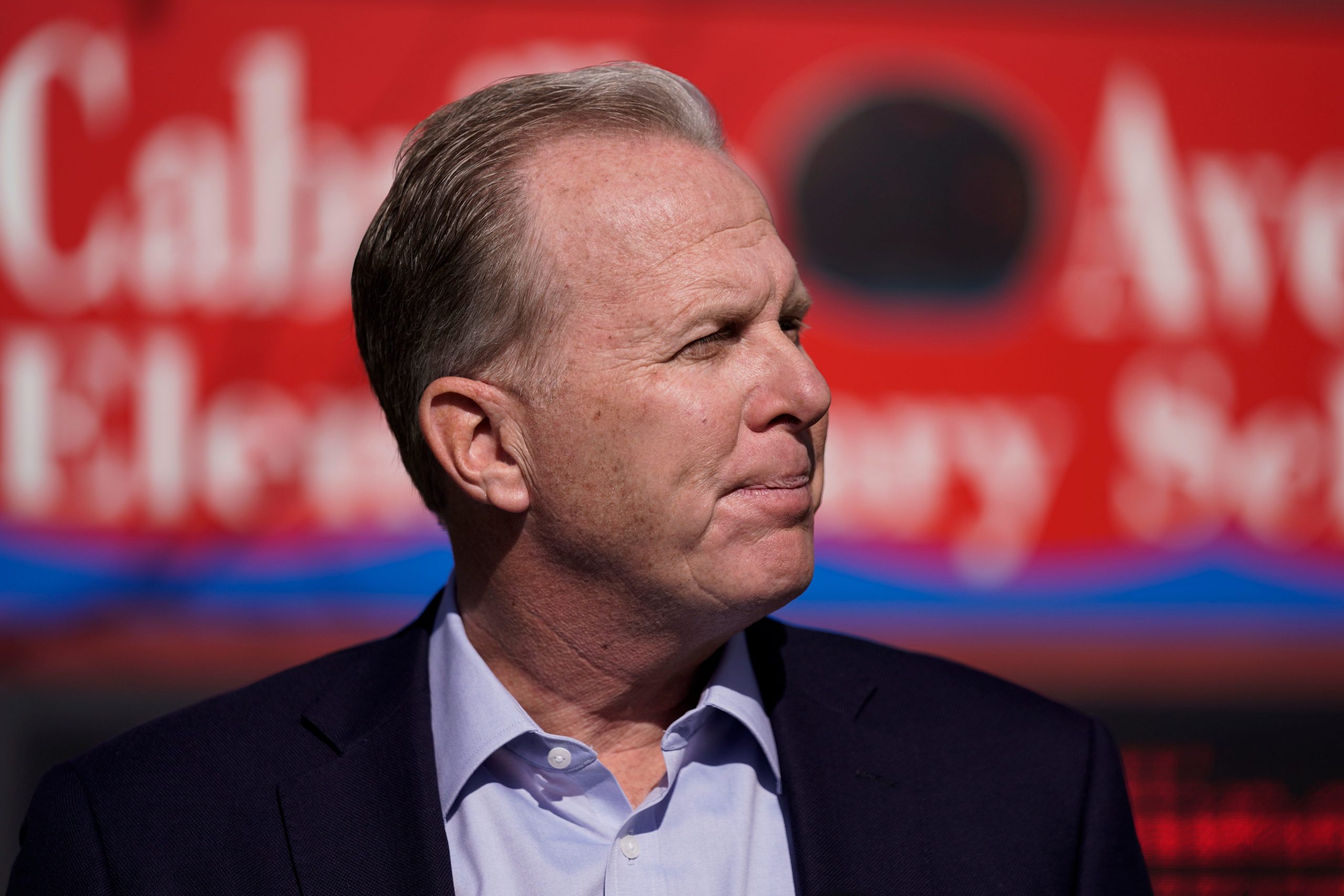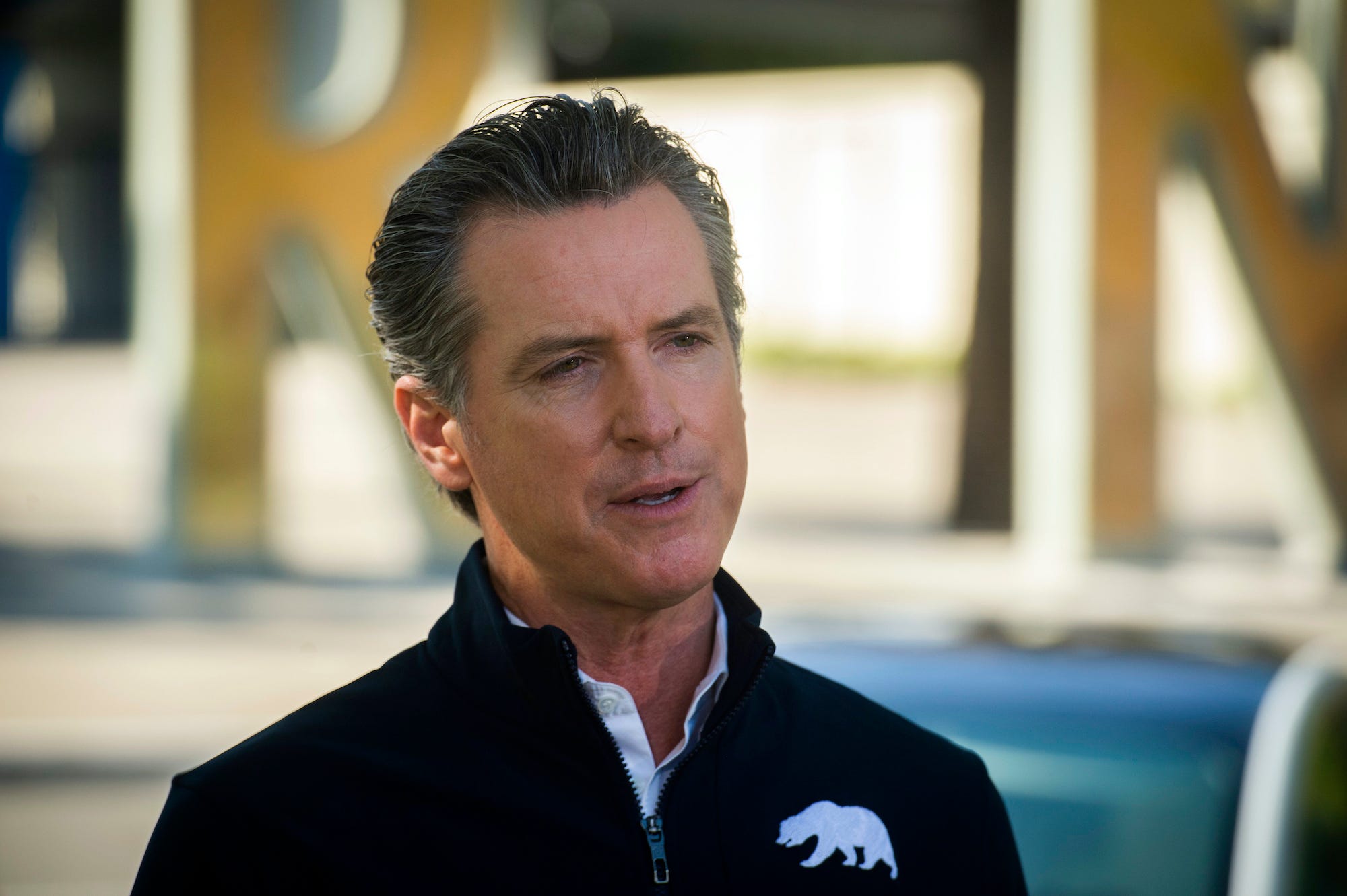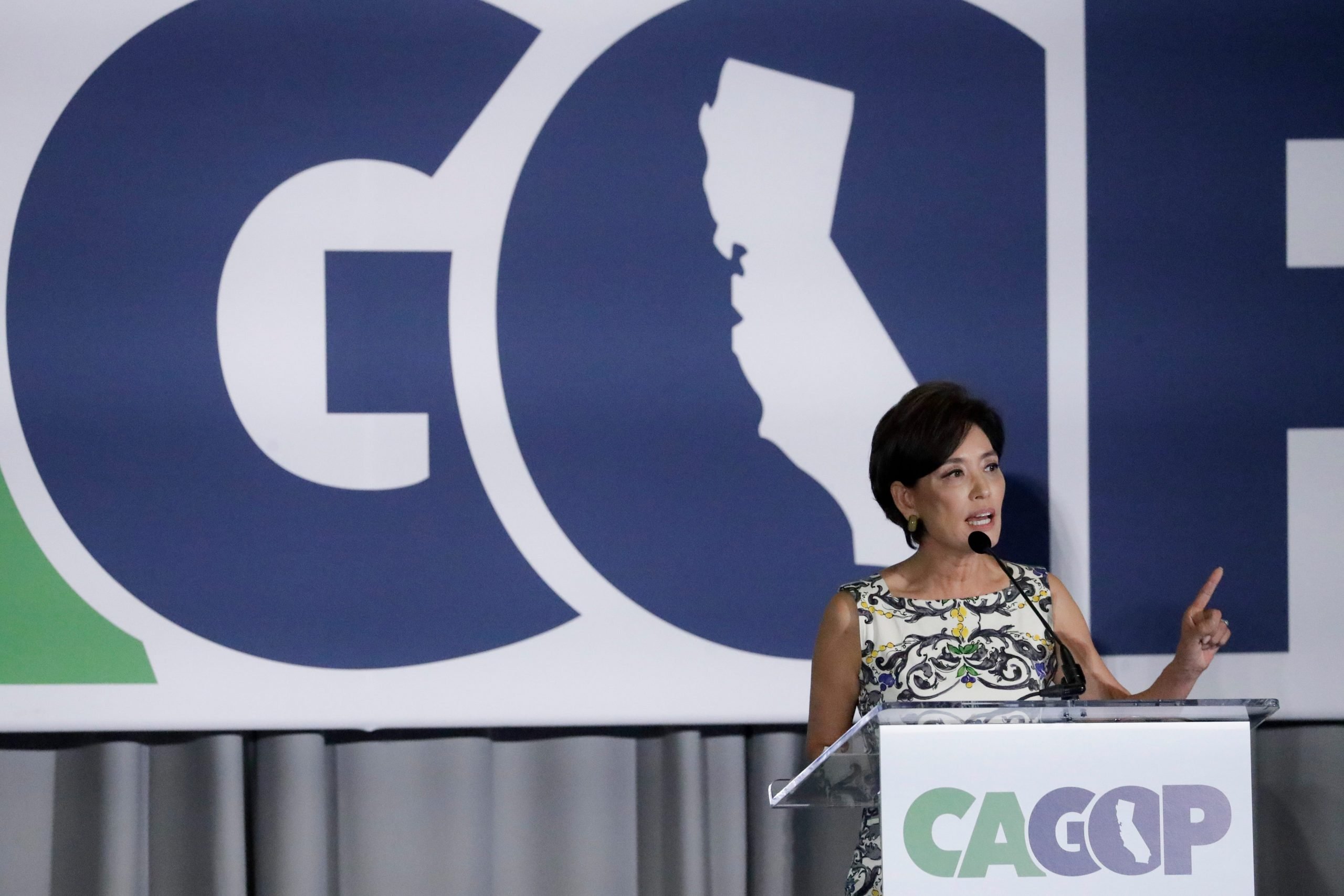
AP Photo/Jae C. Hong
- Kevin Faulconer has launched a campaign for governor against Gavin Newsom in California.
- Faulconer, a moderate Republican, was the mayor of San Diego from 2014 to 2020.
- Democrats dominate California politics, but Faulconer could attract crossover votes.
- Visit the Business section of Insider for more stories.
For most of the past 15 years, California Republicans have been in a severe political drought.
Once a state that produced US presidents like Richard Nixon and Ronald Reagan, Republicans won their last statewide races in 2006 with the reelection of Arnold Schwarzenegger as governor and the election of Steve Poizner as insurance commissioner.
Since then, Democrats retook the Governor’s Mansion, captured every statewide office from lieutenant governor to state controller, and launched the career of Vice President Kamala Harris, a former state attorney general and US senator.
President Joe Biden easily won the state’s 55 electoral votes in November, capturing 63.5% of the vote against former President Donald Trump’s 34% share.
California is now a decidedly Democratic state. However, the party should not get complacent.
A moderate Republican comeback
On February 1, former San Diego Mayor Kevin Faulconer announced that he was launching a gubernatorial campaign against incumbent Democratic Gov. Gavin Newsom for 2022 or a potential recall election that would be held later this year.
Faulconer, a moderate Republican who served as mayor from March 2014 until December 2020, is the strongest candidate that the party has fielded for statewide office in years.
While in office, Faulconer was one of the few big-city Republican mayors in the entire country. Since the San Diego mayoral office is technically nonpartisan, he had a leading role in tackling traditionally progressive issues such as affordable housing and increasing services for the homeless.
Faulconer is also pro-choice, supports the DREAM Act, and backed climate change initiatives as mayor.
"California has so much promise," he said in announcing his run. "But Gavin Newsom's broken promises have become our problems. His leadership is failing our state. It's time for the California Comeback."
Newsom, who faces a recall effort with its supporters having already gathered 1.3 million of the 1.5 million signatures necessary to put the measure on the ballot ahead of a March 17 deadline, has been criticized for his handling of the COVID-19 pandemic.

Daniel Kim/The Sacramento Bee via AP, Pool, File
While California was cited for its quick response and strict measures against the coronavirus in the early months of the pandemic, there has been a brutal COVID-19 wave across the state since late last year.
An unrelenting pandemic
California is the worst-hit state in the US. Roughly 3.3 million people have been infected with the coronavirus and over 41,000 people have died from the disease, according to the latest data compiled by Johns Hopkins University.
While Newsom certainly cannot be blamed for the virus entering the state, the long-term effects of the pandemic have worn thin with many Californians.
In November, Newsom was roundly pilloried in the press for dining as part of a group at the high-end French Laundry restaurant in Yountville, a Napa County town, despite pleading with residents to restrict their social gatherings. He quickly apologized for the incident.
"I made a bad mistake," Newsom said at the time. "Instead of sitting down, I should have stood up and walked back, got in my car and drove back to my house."
Californians, who in 2018 voted for Newsom in a 62%-38% landslide over Republican businessman John Cox, have since cooled to the governor.
In the latest University of California Berkeley Institute of Governmental Studies poll released on February 2, Newsom's job approval rating sat at 46%, a steep decline from his 64% approval rating from last September.
Mining for Republican votes
Despite Biden's massive statewide victory, Republicans made critical gains at the federal level, winning back four House seats that Democrats flipped in the 2018 midterm elections.
GOP Reps. Young Kim, Michelle Steel, Mike Garcia, and David Valadao were able to win districts in Orange County, northern Los Angeles County, and the Central Valley, all of which have a growing contingent of minority voters that were clearly receptive to GOP messaging.

AP Photo/Chris Carlson
Faulconer, who was elected as mayor in a 2014 special election and reelected in 2016, would likely appeal to the independents and moderate Republicans who now vote for Democrats almost exclusively at the presidential level.
San Diego County is a clear target for Faulconer. The county, a longtime conservative stronghold buttressed by the robust military presence in the area, still contains plenty of Republican-friendly turf. It's also his home base.
Between 1948 and 2004, Republican presidential nominees consistently won San Diego County - except in 1992, when Bill Clinton won with a narrow plurality.
That all changed with former President Barack Obama's 10% win in 2008. Similar to most large metropolitan areas across the US, the county began to vote Democratic.
The political reality of the Golden State
In 2012, Obama beat GOP challenger Mitt Romney in the county by a 53% to 45% margin, and in 2016, former Secretary of State Hillary Clinton defeated Trump 56% to 37%.
Last year, Biden beat Trump in the county 60% to 37.5%. Despite Trump's loss, he still received over 600,000 votes countywide, which was an increase of nearly 123,000 votes from his total in 2016, reflecting that there are still plenty of GOP votes to be found.
Neighboring Orange County, which narrowly supported Newsom in 2018 and for generations was one of the most recognizable GOP locales in the entire country, is a place where Faulconer has the potential to make gains.
Republicans are still dominant at the local level in Orange County, and as a center of the anti-mask movement, Newsom will have to work hard to win over many of these voters in his next election.
Despite his current troubles, Newsom has been a longtime fixture in California politics, first as mayor of San Francisco and then as a two-term lieutenant governor. Nearly half (49%) of all voters in the Berkeley IGS poll think a potential recall election would be bad for the state.
However, the pandemic has the potential to scramble traditional political sentiments, and Faulconer is running as a bridge-builder, emphasizing a focus on income inequality and raising the morale of the state.
If conservative activists are willing to accept some of Faulconer's more moderate positions, then his campaign could be a huge step forward in the California GOP's bid to regain relevancy in the state.
Dit artikel is oorspronkelijk verschenen op z24.nl